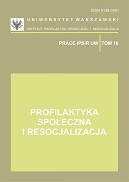Structural Changes during Transition: Prerequisites for Integration and Economic Cooperation
Структурни изменения в периода на преход: предпоставка за интеграция и икономическо коопериране
The investigation examines certain structural economic changes in the context of the ongoing integration processes, as well as the possibilities for providing adequate social and economic policy in this respect. It is determined the adaptability of the Bulgarian economic development to the changing conditions, special attention is given to the demographic and migration processes. Some possibilities for integration and economic relation development with the EU are analysed. The regional development in Bulgaria and its after-effect on the integration processes is analysed. An attempt is made to determine the industrial sub-branches' efficiency on a regional level. The regional potential by basic sectors is determined, on this basis an attempt for regional classification is done. Finally some summarising and conclusions are drawn.
More...
